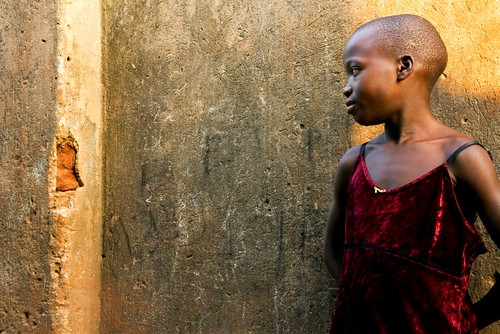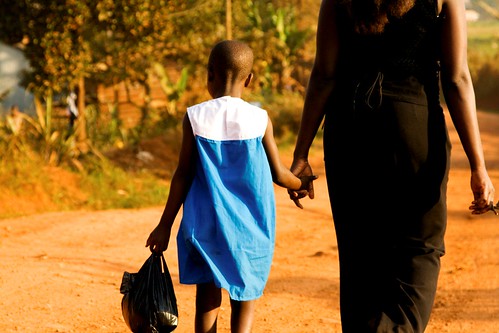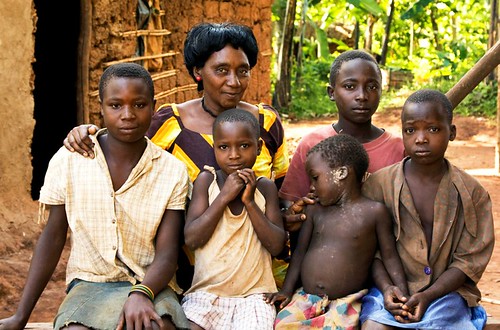Two weeks ago while sitting in my Ugandan living room, I listened to Obama’s highly anticipated speech on Africa. Distinctive of the great orator, the dialogue was uplifting, rhythmic, controlled, but emotive. Setting a blueprint for what the continent should aspire to be, Obama outlined a need for greater investment, financed in part by the West, in Africa’s infrastructure, education and health care. At the same time, Obama warned Africans their success was ultimately dependent upon their leadership and commitment to fair democracy. Africans future is up to Africans.
Watching this a few months ago I would have nodded my head in support not understanding how these goals would be implemented, but that they can and should be, firmly believing that additional U.S. aid was a good thing.
Watching the speech after having lived in Africa for a few months, I found myself nodding at some words, sighing at others, and still not understanding how these ideas would be put to practice. The President’s words and intentions do reflect what ought to happen on this continent, but their fruition feels distant and dim; the development here so lagging at times I feel I have been transported to the medieval.
Obama spoke of the need to end tribalism and conflict, citing mass murder in Darfur and mass rape in the Congo. He also spoke of the necessity to put a stop to corruption, referring to port authorities and heads of state stealing public funds. He speaks the truth; these atrocities and crimes must come to an end for Africa to develop properly. But, unfortunately, these problems are dazzlingly pervasive, as common as the swaying matoke trees in villager’s fields, or the clouds of red dust in the dry season.
Tribalism and conflict aren’t limited to Darfur, Congo and Somalia, the notorious failed states. It is everywhere all the time, just varying in degree. It is evident in local politics, small businesses and community relations, like the mayoral elections I witnessed last month here in Lugazi. Corruption culprits aren’t just presidents, prime ministers, and ministry leaders. It’s also the everyday everybody’s: policemen, doctors, teachers, farmers, even volunteers. Infamous leaders fingered by the international community as instigators of violent conflict, like Mugabe, Kony, and Taylor, are justly demonized and should be pursued and prosecuted. Their crimes, however, are just glaring tips of massive underlying problems plaguing the continent, problems interwoven into underdeveloped cultures, and within underdeveloped minds. You can replace a leader or kill a rebel, but a struggling society saturated with bribery, fraud, poverty and tribalism persists.
I smile softly, a little sadly, at my changing perspective on Africa, my growing nuanced understanding of life here. I think back to my first blog when hospitality was the most striking aspect of African culture, a symptom I suppose of the good Africans looking out for me and my own disposition. My first few weeks here I encountered only the continent’s positive: the deep familial bonds, the kindness to visitors, the sacrifices for the destitute, the shining heart in humbling adversity. Inspiration is here and can be seen daily, but with the passing of time I’ve also become familiar with the continent’s otherness: the witchcraft, polygamy, corruption, and tribalism, all of it pervasive and an accepted part of life.
Africa is at times gorgeous, other moments hideous, but consistently in need. And it is more than just not having enough money to eat or go to school or buy nice things. It is more than poverty, it is poorness. It is a poorness in standards: professional and academic, in the press and government, in the hospitals and schools. It’s more than genocide, rigged elections and dictators that Africa must overcome, it’s also the lack of attention to detail and commitment to excellence in daily pursuits that create the fabric of society. Regularly I hear about professionals’ lack of professionalism, like doctors endangering lives, contractors collapsing buildings, or nurses unwilling to help trauma patients. Regularly I witness shoddy workmanship such as teacher’s notes with terrible grammar, newspaper articles rife with inaccuracies, or expired prescriptions on pharmacy shelves. I also regularly ascend and descend uneven stairs, enter buildings with sloppy paint jobs, ride in taxis crumpled and falling apart from poor maintenance. Regularly I see how poorness in wealth contributes to poorness in standards and back again, creating a cycle.
With all this poverty and the shameful discrepancy between how the West and how the Rest live, intuitively I feel that Western nations should be assisting developing countries in some capacity, but I have conflicting feelings on how this should be done. Obama has pledged $63 billion to Africa, which undoubtedly could go far in alleviating some of the problems relating to infrastructure, health and education. But when you read in magazines, books, and newspapers of the collective waste, greed and stealing that accompanies aid, how the money is used to finance rebel groups and tyrants and dishonest politicians alike; when your Ugandan civil engineering brother tells you of a $100 million Kenyan road that was never built, but the money gone and the road even mapped as if it exists; or when your Ugandan doctor friends confirm that a small fraction of donated medicines makes it to clinic shelves, most of it stolen by the health ministry or physicians and resold on the black market; or when your Ugandan parents tell you it’s no good following up with the official on the economic development project because he might be setting you up for money laundering, not because they know anything about this individual, but because that’s what people in government do; or when your own volunteer work with the local microcredit organization appears awash in incompetence and possible dishonesty by the very people you are working alongside; or all of the other examples of fraud that you can’t even remember, they are just a blur of events that make up life here, it kind of takes away from the U.S.’s promise as you envision billions vanishing into the expansive African sky.
And despite all these problems I regularly encounter here in Africa, and the frustration it inspires in me, I love Africa and deeply appreciate American willingness to offer it assistance. Of course, I also now have a vested interest in the continent beyond just dreaming of better conditions and opportunities for millions of vulnerable lives in a distant land. Having lived, worked, struggled and celebrated with Africans, I have a concern that borders on the familial since becoming a Mama Muzungu to five children here.
Like any parent, for my African children, I want a better future, one that would be low-reaching by American standards, but acceptable, even above African norms. I want my children to not ever worry about having enough to eat, about receiving proper medical treatment, about drinking clean water, about having a roof over their heads, about having a mattress under their bodies, about attending school, or about earning enough to at least make ends meet. I aspire this for them as well as their happiness. And I comforted in knowing that I am able to help them meet their needs and realize their dreams. But for the millions of other desperate Africans, I don’t have any control; I can only leave it to hope. And so I cautiously watch the continent and proceed with the hope that Obama’s warnings are headed and his optimism ultimately realized.









I remember being in bars in Kenya and people would come up to me and start talking politics for hours and some where in the middle was always, "Can you tell your president....". Um yeah sure, I talk to him all the time, no problem, lol!
ReplyDelete-h